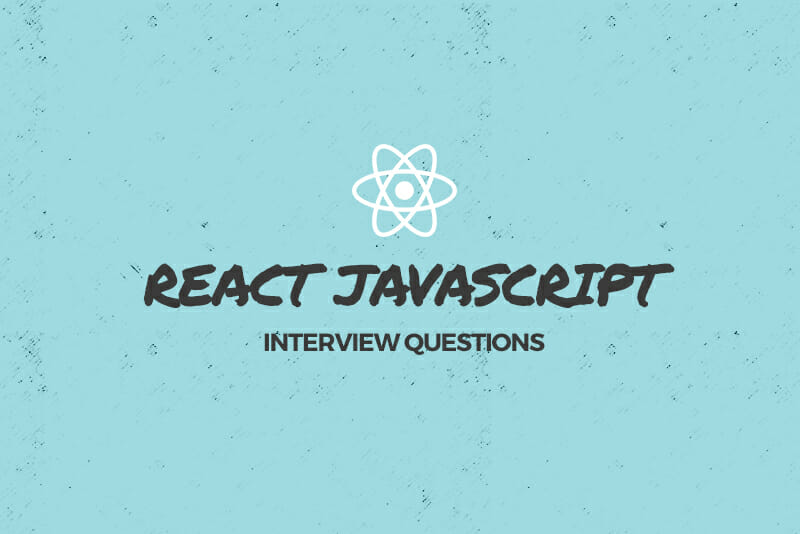Web Developer Job Interviews Decoded: Exactly What Skills to Highlight, What to Expect, and How to Leave a Positive Impression
Operate at max confidence when the big day comes.


So you overcame all your doubts and fears about learning to code—you know you’re never too old, your previous education background doesn’t matter, the jobs are out there, and you can learn the fundamentals in a matter of months. You’re primed and ready to get started mastering the ins and outs of HTML, CSS, and JavaScript (or maybe you’re already well on your way). But there’s just one shadow of doubt still hanging around. Once your initial learning process is over it’s time to start looking for jobs, and that means job interviews. Job interviews are a nerve wracking experience for most of us, but when you add the word “tech” they seem even more foreboding. Images come to mind of computer science professors asking you to answer impossible questions and solve universe-imploding equations from deep in the center of an impenetrable server maze. But is the experience really that harrowing?
The short answer is: Nope. Of all the tech roles out there, web development (the job of using coding languages to build and maintain websites) remains one of the most accessible and achievable positions. And so to help get you past that last remaining knot of anxiety as you break into tech, I spoke with a web developer and two hiring professionals to decode what exactly the web developer job interview process looks like. What skills do you need to build up and highlight in preparation for an interview? What can you bring to the table in addition to your skills to make a positive impression on employers? What questions will the interviewer ask? How can you make yourself the best candidate possible? And what should you avoid doing altogether? Read on as these pros describe a surprisingly straightforward process.
Skills to Bring to a Web Developer Job Interview
If you’re wondering exactly what skills to have ready when it’s time for your web developer job interview, Marielle Smith, VP of People at employment screening service GoodHire, says that typical front-end web developer jobs require advanced HTML and CSS skills and a working knowledge of programming languages like JavaScript, Ruby, and PHP. Along with these qualifications, Smith says that individual job postings will usually list any JavaScript libraries or frameworks (collections of pre-written JavaScript code) the employer expects candidates to be familiar with. Smith adds that the majority of front-end web developer jobs won’t expect back end developer skills unless otherwise specified, so a lack of these skills shouldn’t affect your ability to land front-end web developer work. However, if you’re interested in back end development (or looking to present a full stack resume for maximum flexibility), languages like Python and Java will be key additions to your skillset.
Smith points out that—alongside any coding proficiencies you have at the time of your interview—it’s critical to communicate to the interviewer your ability to learn new languages, libraries, and skills in the future. “Understanding how programming works and how to learn a new language is almost as important as whatever training or skills you already have experience with,” Smith says. And so you’ll need to highlight your willingness to continue learning on the job (past the point of what’s already listed on your resume) and call attention to any languages or skills you’re currently in the process of learning. This won’t make you seem incomplete to prospective employers, Smith says, since savvy interviewers will want to understand how you’ll respond to problems you don’t know how to solve. A demonstrated willingness to research issues on your own and demonstrate some self-directed problem-solving skills will go a long way toward establishing your qualifications.
Finally, Smith cautions not to overlook your non-technical soft skills as you prepare for the interview process. “Web developers are always working on a team with designers, product managers, and back end engineers,” says Smith, “so you’ll need to highlight that you have good time management and interpersonal skills. These critical skills will not only help you secure the position, but also be successful once you’re in it.” Make sure to carve out a space on your resume to showcase these skills, and be prepared to work them into your interview answers whenever questions about non-technical talent come up.
Be Prepared to Get Hands-On and Don’t Lose Sight of Technical Specifics
While soft skills and a general ability to solve problems and learn new things will help you stand out to potential employers, Elena Roig, web developer at content management system and web hosting provider Solodev, says that web developer job interviews will eventually zero in on technical specifics and your ability to execute them in the unnecessarily dreaded technical interview. For instance, Roig says, she once had an interview with a company owner and two developers who asked her about object oriented programming and other highly technical questions that—without experience in the area—would have been over her head. “They made me code a page with specific parameters and without internet access, so I couldn’t search for additional resources.” Roig says. She adds that it’s not uncommon for interviewers to use this approach, so—while you shouldn’t panic or dread the prospect ahead of time—you should make sure you’re up to speed with the specific needs of the job you’re applying for so you’re ready to get hands-on in the interview if the need arises.
As an experienced manager of web development projects without programming skills himself, Adam Thompson, SEO and PPC manager at SSL certificate provider ComodoSSLstore, echoes that specific technical expertise is a common focus for developer interviews. A project manager like Thompson relies on the technical know-how of potential hires to carry the programming load on his team, so it’s crucial for those hires to demonstrate expertise related to the specific technologies they’ll be working with.
For example, Thompson says that if he’s hiring a WordPress developer, his interview process will involve looking for things like:
- A portfolio of websites developed in PHP/WordPress that show original, custom features
- A strong understanding of best practices for developing WordPress themes
- Knowledge of relevant WordPress features and how to use (and code for) them
- Ability to quickly estimate basic tasks (e.g. coding a new WordPress theme from a Photoshop document)
- High efficiency on routine tasks (e.g. updating WordPress or coding a new theme)
- Use of best practices like source control, backups, etc.
Thompson says to note that each of these areas focus strongly on granular experience and specific knowledge (as opposed to general programming competence). Thompson believes this kind of hiring approach—drilling deep into a candidate’s job-specific skills—is common among moderately technical hiring managers like himself, and advises that candidates should be prepared accordingly depending on the particular job they’re applying for.
Thompson’s developer interviews boil down to two basic questions: “Can you do the work we need done at the level we expect?” and “Will you avoid big risks and potholes (e.g. being too slow, making changes to code without appropriate backups, etc.)?” If you can convince employers that you are committed to effective, conscientious work, and can demonstrate your proficiency with the skills vital to the job at hand, you’ll go a long way in distinguishing yourself during an interview, regardless of the specific interview format or questions.
Show Them You’re a Web Developer AND a Developed Person
As key as demonstrable skills are to acing a web developer interview and landing a job, it’s never a bad idea to go the extra mile and make sure you come across as memorable as possible during your job interview. But what exactly does that extra mile consist of?
For Smith, it’s showing interviewers that you won’t just be successful at your job, you’ll also enjoy doing it. “These two things go hand-in-hand,” Smith says. “If we’re considering two candidates who have equal skills and experience, we’re going to hire the candidate that openly expresses their excitement and interest in the position, and that they’re passionate about the work they’ll be doing to support the company’s mission or product.”
Smith says this ultimately comes down to a matter of an employer investing time and resources to bring a new employee on board. “We want to make sure they’re excited about it,” Smith says, “and that they’re going to stay a while.” This means you shouldn’t let the interview environment make you too stiff or reserved—it’s okay to be yourself and show the kind of earnest enthusiasm you’ll bring to the position. As Roig says, it’s simple: Have a personality. “There’s a myth that programmers don’t know how to talk to other people,” Roig says, “but by showcasing basic conversational skills, you’ve already broken that stereotype and made a positive impression. We might be nerds, but we’re COOL nerds!”
Keep It Positive and Know Who You’re Interviewing With
While sharing about yourself during a web developer interview is one thing, it’s still possible to veer into the realm of oversharing—a place no interview prospect wants to go. One critical oversharing pitfall Smith says to avoid is the temptation to grind an axe about your current or previous employer. As much as you might want to tell your story about the dismal situation you’re trying to get away from, Smith warns that framing your interest in a new job through the negative lens of an old one is a surefire way to sink your hiring chances. Further, Smith says to avoid negatives in general when presenting yourself in a developer interview. “Rather than talking about what you’re not interested in, instead focus on the aspects of the position you’re excited about—the opportunity to learn new things, stretch your wings, and grow.”
Roig adds that you need to walk a tightrope between confidence and overconfidence during your job interview, staying smack in the middle as much as you can—doubting yourself and your coding skills isn’t a good look to prospective employers, but over-selling yourself and what you can do can be a deal killer as well. “Definitely have confidence in the programming skills you’ve acquired!” Roig says, “but remember that no programmer is perfect and there is always room to grow.” And finally, Roig says, DO take the time to inform yourself at length about the company and job you’re interviewing for. Not having a clear understanding of a company’s mission or a position’s responsibilities will lead to embarrassing interview gaffes that can undo all the rest of your good work. Roig says it’s essential to familiarize yourself with what it is the company you’re interviewing for does and have an idea where your web developer skills will be best applied.





